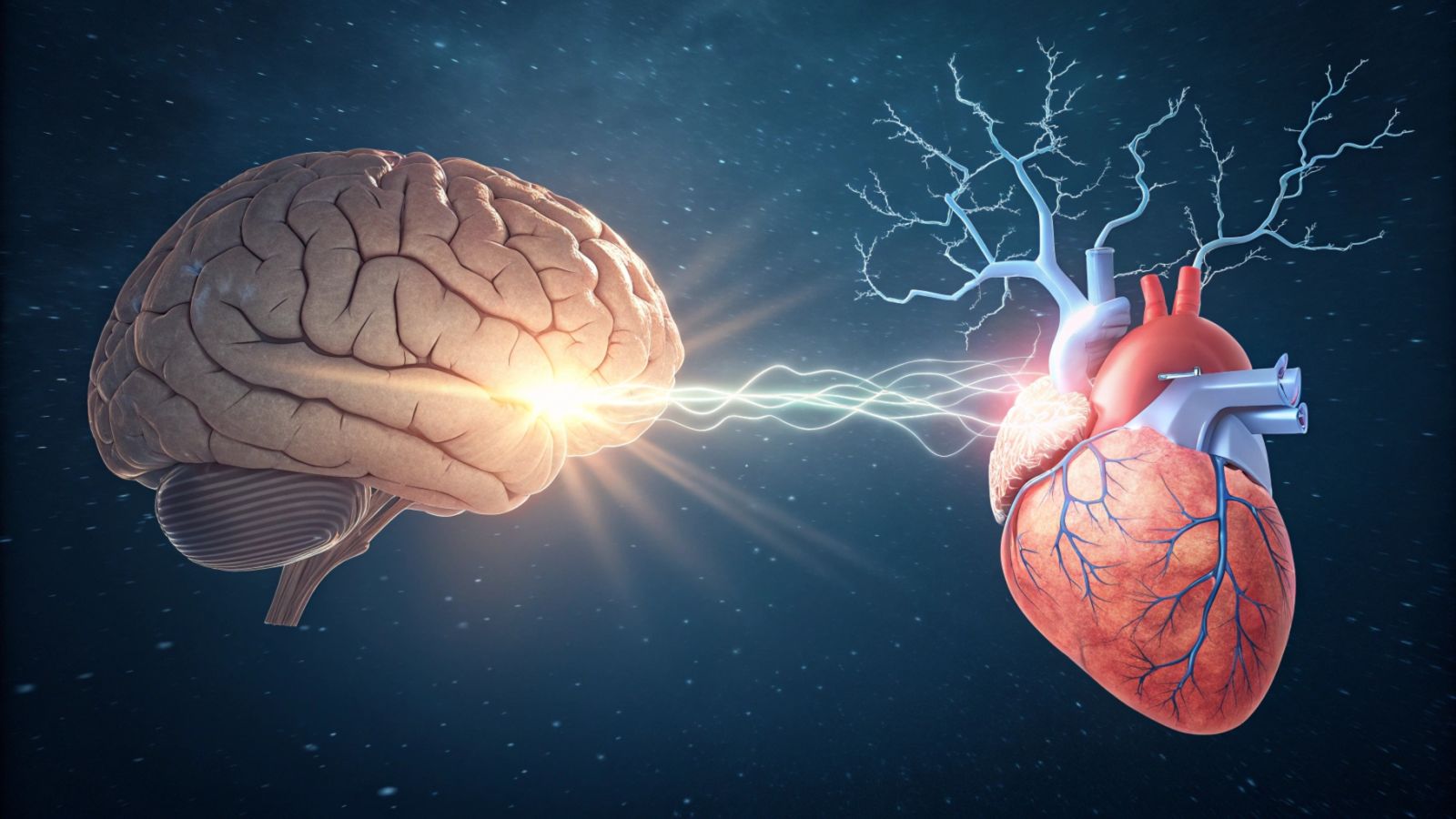Your heart races under stress, here's how 🧠
Published by Cédric,
Article author: Cédric DEPOND
Source: Frontiers in Physiology
Other Languages: FR, DE, ES, PT
Article author: Cédric DEPOND
Source: Frontiers in Physiology
Other Languages: FR, DE, ES, PT
Follow us on Google News (click on ☆)
When the body faces a stressful situation, its heart rate and blood pressure noticeably increase. This phenomenon, essential for reacting to threats, is orchestrated by mechanisms within the brain.

A team of researchers from the University of Tsukuba in Japan has identified a key player: the lateral habenula, a small brain region involved in emotional regulation.
In a laboratory setting, scientists conducted experiments on anesthetized rats. Using electrodes, they stimulated this specific brain region to simulate stress. The result: significant variations in heart rate and blood pressure were recorded. But that's not all.
The role of dopamine, a neurotransmitter well-known for its involvement in pleasure and motivation, also proved to be crucial. By blocking its transmission, the researchers observed that cardiovascular responses disappeared. The dopaminergic system thus seems to play a central role in this cascade of events.
Another element came into play: the ventral tegmental area, located in the midbrain. This region, rich in dopamine-producing neurons, receives signals from the habenula. When it was inhibited, the effects on the heart and blood vessels also vanished. This confirms a subtle but essential interaction between these two brain areas.
This discovery highlights a brain circuit that had previously been little studied for its links to stress. This mechanism could explain how the brain adjusts physiological responses to environmental factors, ensuring survival.
The implications are numerous. Understanding this link between stress, the brain, and the heart could pave the way for innovative therapies to manage disorders linked to chronic stress. Maintaining balance in the body remains a key challenge in modern medicine.
For the researchers, the exploration doesn't stop here. They aim to deepen this work to better understand the complex interactions underlying behavioral and physiological responses induced by stress. These brain mechanisms could one day become the key to preserving our health in the face of emotional challenges.